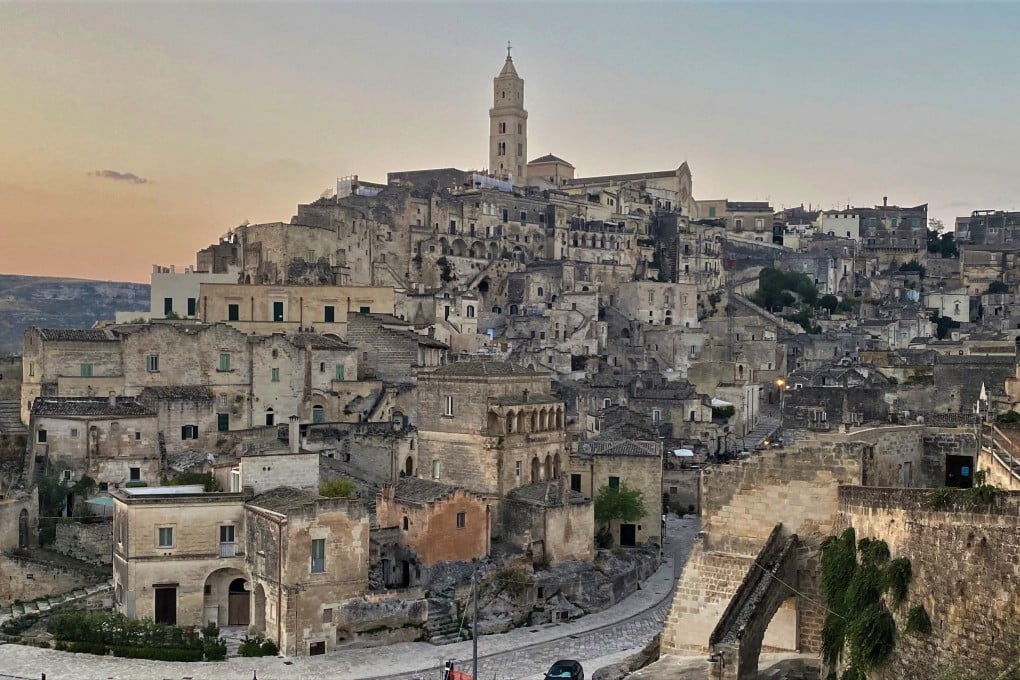City in new James Bond movie No Time to Die is ‘Shame of Italy’ no more: how Matera left its dark days behind
- Matera, one of the most striking locations featured in the new 007 film, was once a byword for poverty, infant mortality and medieval levels of disease
- When James Bond came to town, the collision of Italy’s oldest civilisation with the demands of a Hollywood blockbuster brought surreal moments of light relief

“One of the most spectacular scenes for the film was shot outside the place where my father was born,” she says, proudly. “I tried to explain what was happening but he didn’t really understand.”
His bewilderment is understandable. After all, Matera – clinging to a craggy hillside above a wild and barren landscape in southern Italy – is one of the last places Daniel Craig would be greeted with the words: “We’ve been expecting you, Mr Bond.”
Home to troglodyte cave dwellers for 9,000 years and site of the country’s first-known human habitation, Matera was labelled “the Shame of Italy” in the 1950s, when its residents were found living in shockingly backward and unsanitary conditions.
Some 15,000 people lived in the cave homes cut into the city’s harsh hillsides, with livestock and families squeezed into cramped spaces without natural light, electricity or water. Matera became a byword for poverty, infant mortality and medieval levels of disease.
Residents of the old city – called the Sassi, from the Italian word for stone – were hurriedly evacuated to a bland and functional new city centre of modern residential blocks a mile away. Officials even considered walling off the ancient quarter to keep it forever out of sight.
